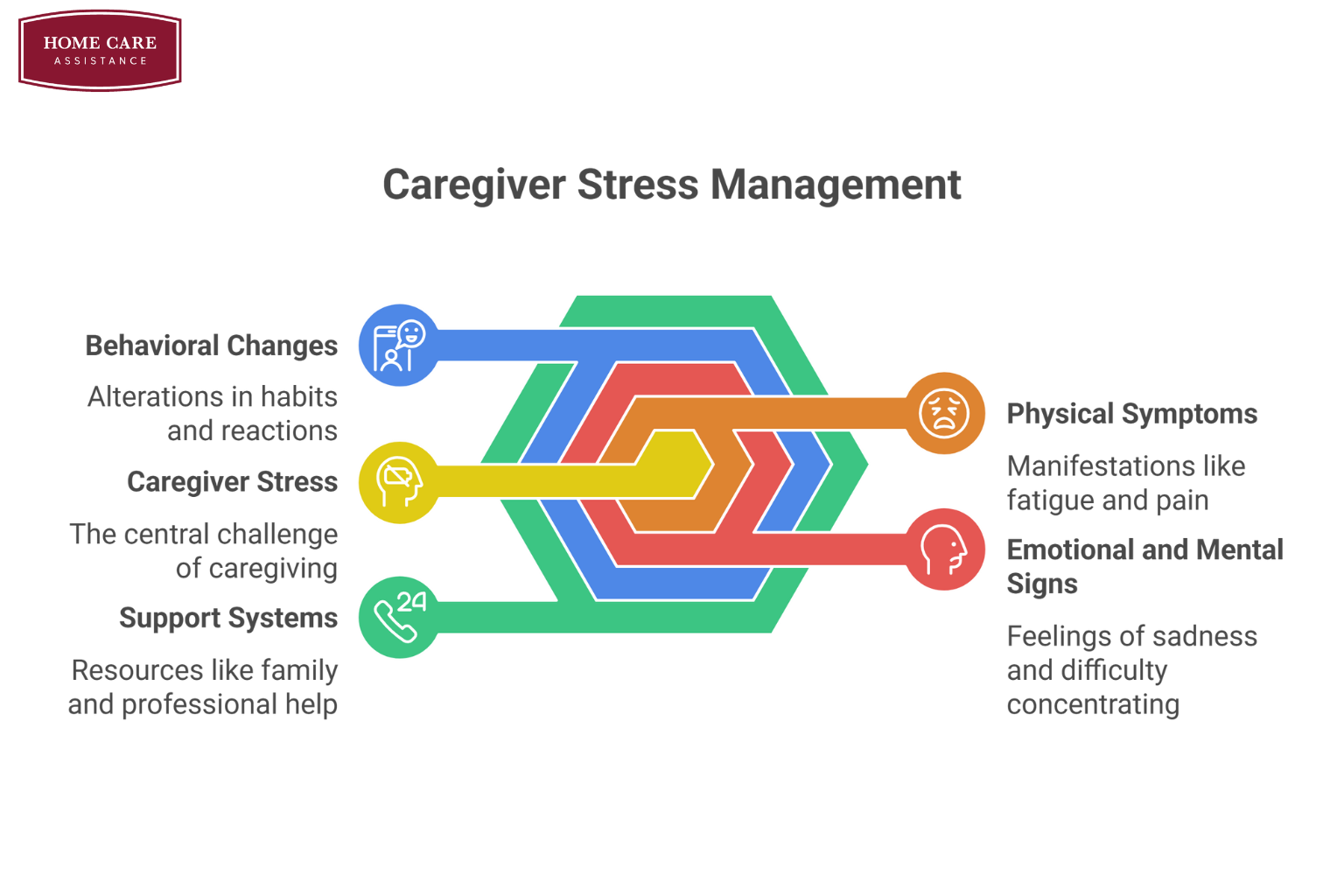
Taking care of a senior loved one is one of the most generous and compassionate acts a person can do. However, caregiving is also a demanding role that can result in physical, emotional, and mental stress. Understanding how caregiver stress manifests and taking steps to address it is crucial for both the caregiver and the person receiving care. Below, we explore the signs of caregiver stress and provide practical solutions to help you manage it.

Physical Symptoms to Watch For
Caregiver stress often takes a toll on the body. Common physical signs include:- Persistent fatigue even after a full night’s rest
- Weight fluctuations caused by stress-induced overeating or skipped meals
- Frequent headaches or muscle pain, especially in the neck or shoulders
- A weakened immune system, leading to recurring colds or infections

Emotional and Mental Signs of Stress
The emotional toll of caregiving can often be just as significant as the physical toll. Watch for signs such as:- Feelings of sadness, hopelessness, or being overwhelmed
- Irritability or frequent mood swings
- A tendency to withdraw from social interactions or activities you once enjoyed
- Difficulty concentrating or making decisions
Behavioral Changes to Be Aware Of
Stress can cause noticeable changes in behavior, which may indicate you’re facing challenges. These changes might include:- Increased reliance on caffeine, alcohol, or even prescription medications to cope
- Difficulty keeping up with daily responsibilities, such as work or household tasks
- Overly critical or negative reactions toward your loved one or others around you
- Neglecting personal hygiene or basic self-care routines
Practical Steps to Manage Caregiver Stress
Acknowledging caregiver stress is the first step, but actively addressing it is crucial. Here are some strategies to relieve stress:- Take breaks – Schedule regular respite care, whether through professional services or support from family and friends. Taking even short breaks can recharge your energy.
- Set boundaries – Learn to say no when you’re overwhelmed, and don’t feel obligated to take on every task alone.
- Focus on self-care – Dedicate time to activities that bring you joy, such as yoga, reading, or walking in nature.
- Leverage technology – Use apps or tools that help with medication reminders, schedules, or grocery deliveries to lighten your load.
- Seek professional help – Therapy can provide valuable coping strategies, and consulting a physician can address any physical symptoms you might be experiencing.
The Importance of a Support Network
No one has to do this alone. Building a strong support network can make caregiving more manageable:- Family and friends – Don’t hesitate to share your challenges with loved ones and ask for support when you need it.
- Support groups – Joining a group of individuals facing similar challenges can provide both emotional solace and practical advice.
- Professional resources – Many communities offer caregiving services, such as respite care, adult daycare, and educational programs, to ease the burden.
- Online communities – For those unable to attend in-person meetings, online forums provide a space to share experiences, advice, and encouragement.